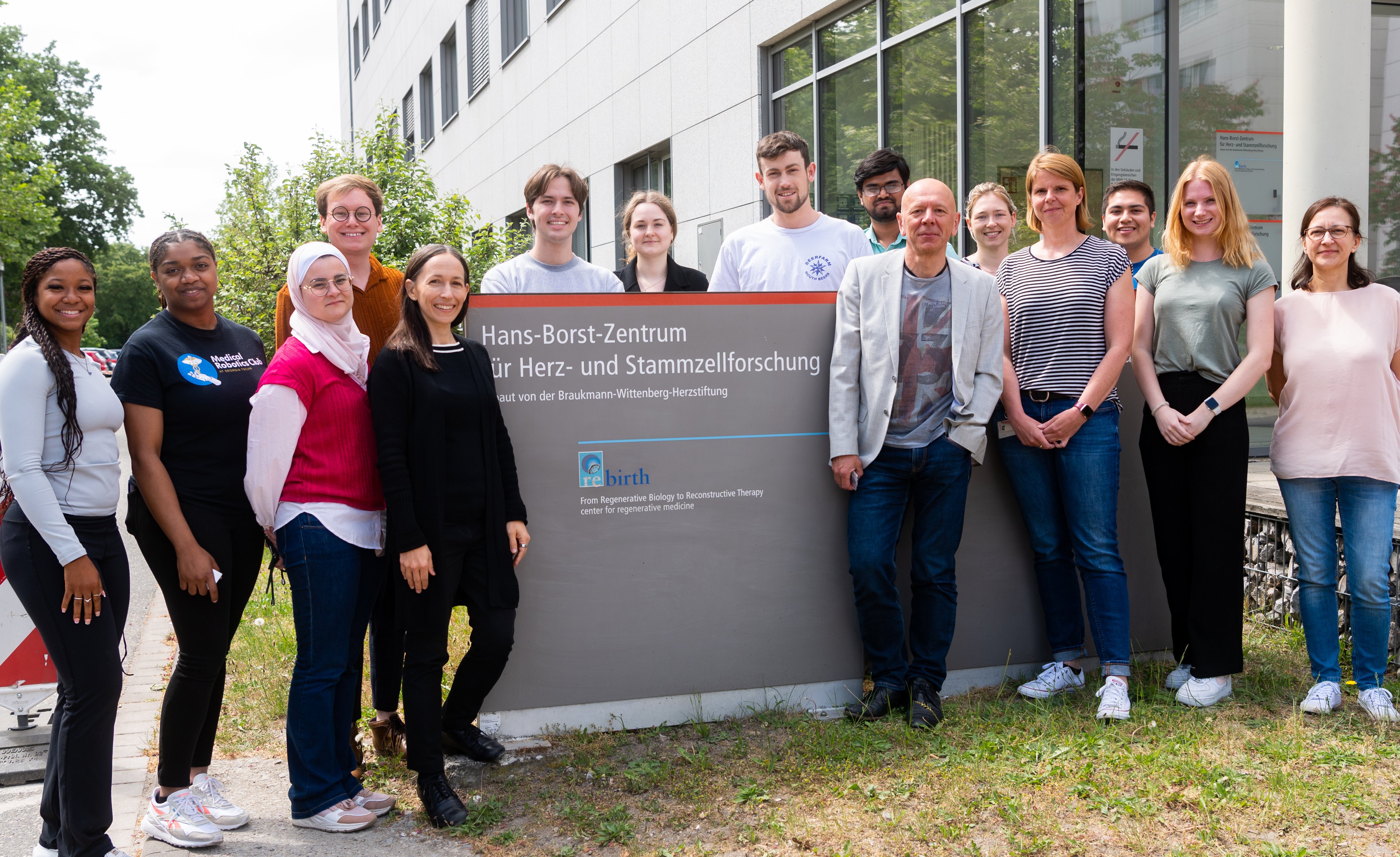New research and training program launched in June

MHH Trains U.S. Students in Cell and Tissue Biomanufacturing. Copyright: Anna-Katharina Junge
12. June 2023
In June 2023 a new international research and education program between MHH and Auburn University (Alabama U.S.) started. The project is focused on process development for cell and tissue manufacturing and brought five students for two month to MHH. Building on ongoing collaborative research, this program is led by Dr. Elizabeth Lipke, principal investigator at Auburn University and Dr. Robert Zweigerdt, principal investigator at MHH along with co-investigators Dr. Ina Gruh, Dr. Ruth Olmer, Dr. Nico Lachmann and Dr. Stefan Kalies.
In total, the project will bring 15 visiting student researchers from Auburn to MHH over the next three years. This collaborative initiative was made possible by competitive International Research Experiences for Students (IRES) grant funding acquired from the U.S. National Science Foundation (NSF).
Critical need for well-educated engineers, scientists, and clinicians
To advance regenerative medicine to repair the human body following injury or disease, there is a critical need for well-educated engineers, scientists, and clinicians to work jointly to translate applied research to clinical treatments to improve human health. “MHH has built a unique environment to bring all these facets together. In particular knowledge and platforms to enable industrial scale cell and tissue manufacturing, engineering and biophysical manipulation are critical for realizing clinical treatments and maximizing the societal benefits from the long-term research in the fields of cell therapy, tissue engineering, and transplants”, explains Dr. Robert Zweigerdt. Researchers at MHH including the Leibniz Laboratories for Biotechnology and Artificial Organs (LEBAO), the Clinic for Pediatric Pneumology, Allergology and Neonatology, and the Institute of Quantum Optics (Leibniz University) at the NIFE are at the forefront in this research area. By bringing students to MHH, this program provides students the opportunity to conduct research at this interface, advance their knowledge of German culture, and become aware of scientific education and carrier opportunities in regenerative medicine on a trans-institutional and trans-Atlantic level.
Besides the scientific collaboration, the program promotes MHHs international visibility, early screening of talented students for recruitment to MHHs graduate programs, and the ability to apply for U.S. funding. red